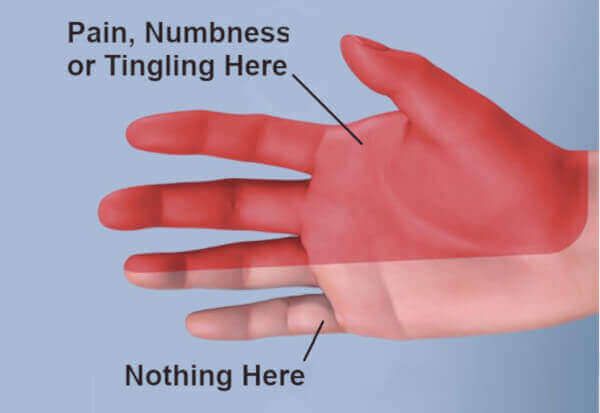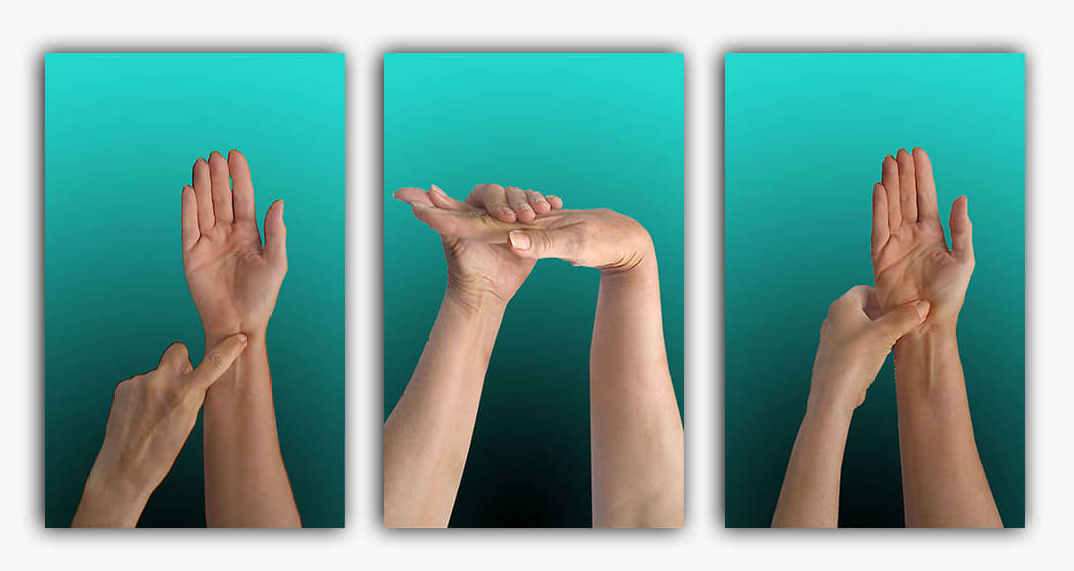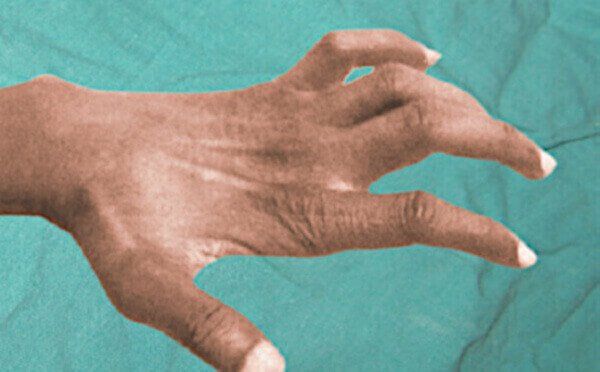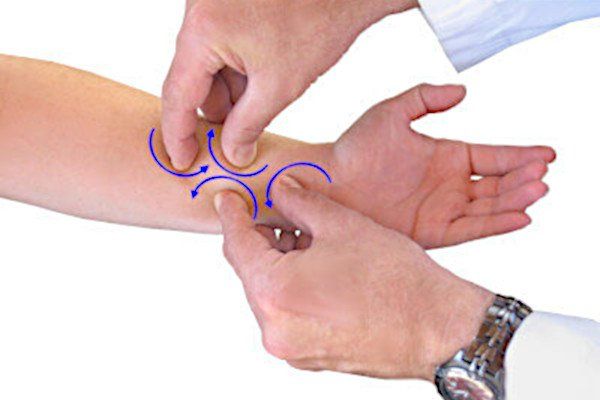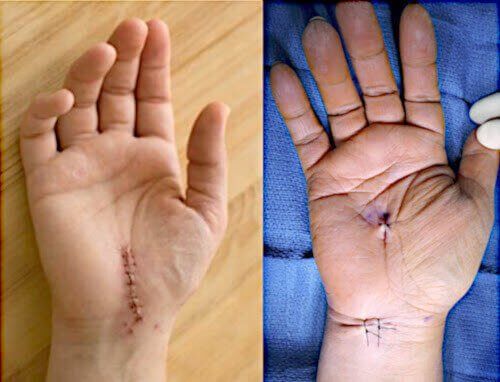What Your Carpal Tunnel Doctor will Recommend
From Dr. Z - Carpal tunnel syndrome specialist
What is a Carpal Tunnel Doctor?
If you suspect you have carpal tunnel syndrome, you're probably thinking of seeing a specialist: a carpal tunnel doctor. That's a physician who specializes in various disorders of the hand. They're most often referred to as "hand doctors" or "hand specialists".
Carpal tunnel syndrome is just one kind of hand disorder these doctors typically see. But it's the most common chronic disorder of the hand (after
arthritis).
When you
find a carpal tunnel doctor in your area, be sure to ask the questions provided
at the end of this article. They will help guide you to insure you get the very best doctor possible. After all, your hand depends on it.
- FIND OUT: do you have carpal tunnel? No strings attached self-test.
What your carpal tunnel doctor will do
The two parts of all medical practice consist of diagnosis and treatment. Everything about your health extends from those two basic processes.
Therefore, you can expect that your carpal tunnel doctor will first diagnose you. Be aware that you may not have carpal tunnel syndrome!
A host of other conditions can mimic this disorder because their symptoms are so similar. They include wrist tendonitis, fibromyalgia, thoracic outlet syndrome, arthritis, hypothyroidism, neuropathy, and lupus.
Therefore, the doctor will check your symptoms and try to distinguish them from these (and other) possible disorders. Sometimes a blood test is required to rule out these candidate disorders.
The most common symptoms of carpal tunnel syndrome are listed below. They include hand or finger:
- pain
- numbness
- tingling (pins and needles)
- burning
- soreness
- weakness
- shooing electric shocks
Carpal tunnel syndrome is such a common disorder that if you have any of the above symptoms, then you probably have it. Your carpal tunnel doctor will suspect this and begin their diagnosis.
A good doctor will perform exhaustive diagnostic tests to be certain. This is a crucial step, and the doctor should make you feel comfortable that you're getting the correct diagnosis. Why?
Misdiagnosing these other conditions as carpal tunnel syndrome might lead to an unnecessary surgery. Actually, the National Institutes of Health (NIH) says that carpal tunnel syndrome is misdiagnosed almost 50% of the time. And this often leads to unnecessary carpal tunnel surgery.
Carpal tunnel diagnosis
Unlike a decade ago, today a carpal tunnel doctor understands that provocative testing is the most reliable way to diagnose this condition. Provocative testing means the doctor will bend and push on your hand and wrist to see if they can provoke symptoms.
The three main provocative tests are the Tinel, Phalen, and Durkan tests (see photos above). If the doctor performs these tests and any two reproduce your symptoms, then you likely have carpal tunnel syndrome.
Note: You can do these identical tests on yourself by using
these instructions.
Many carpal tunnel doctors still also rely on electrodiagnostic tests to confirm the provocative tests. That's especially the case if the provocative tests are borderline positive.
The electrodiagnostic tests are composed of nerve conduction studies and electromyography (EMG). Nerve conduction studies use surface electrodes to test the health of your median nerve. EMG tests use needles inserted into your arm to test the health of your muscle's response to nerve stimulation.
Again, these electrodiagnostic test are only meant to
confirm
the provocative tests. They are not to be used
alone
as the definitive test for carpal tunnel syndrome.
Stages of carpal tunnel syndrome
When your carpal tunnel doctor confirms the diagnosis of carpal tunnel syndrome, he or she will determine which stage of the disorder you're in. In other words, how far has carpal tunnel advanced according to your symptoms. Only then can the doctor formulate an appropriate treatment plan based on the stage of your condition.
There are are 4 basic stages of carpal tunnel syndrome:
- Mild Stage Carpal Tunnel Syndrome:
This is when
symptoms begin to appear while you're trying to sleep. Usually, pain or numbness will awaken you with the need to rub out or shake out your hand. Symptoms will generally not appear during the day.
- Moderate Stage Carpal Tunnel Syndrome:
This stage is characterized by symptoms appearing during the day as well as at night while trying to sleep. The symptoms are more intense. Multiple symptoms usually occur (e.g., pain plus numbness plus soreness). Loss of grip strength is also generally noticed, as is hand clumsiness and loss of dexterity.
- Severe Stage Carpal Tunnel Syndrome:
This is characterized by
intense, unrelenting symptoms. There is essentially no relief from them. Their severity affects every aspect of your life. By this stage, most patients begin to lose sensitivity to temperature in their fingertips. There is catastrophic hand weakness and loss of dexterity.
- End-Stage Carpal Tunnel Syndrome: Some doctors call this the "advanced severe stage" or "terminal stage" of carpal tunnel syndrome. Ironically, as the median nerve dies, pain symptoms diminish. But numbness does not. Loss of hand strength and dexterity is complete. The muscle at the base of the thumb flattens out. Most patients also lose complete temperature sensitivity in their fingertips. Some patients exhibit claw hand. This is where fingers are curled slightly, as in a claw, due to lack of nerve input.
Carpal tunnel treatment plan
Treating mild carpal tunnel syndrome
If your carpal tunnel doctor diagnoses you with mild carpal tunnel syndrome, your treatment plan will be relatively simple. The American Academy of Orthopedic Surgeons recommends all mild cases of carpal tunnel syndrome be managed conservatively. That means using non-surgical therapies.
Conservative management techniques include resting and avoiding the activity that brought on the disorder. Since carpal tunnel syndrome is usually directly related to your occupation, it might mean changing jobs.
The doctor will also likely recommend other conservative management techniques. These are night bracing, stretching exercises, massage. and steroid injections.
Daily application of these treatments should allow all symptoms to resolve within 4-6 weeks. If they don't, then more aggressive treatments are required (see below).
Treating moderate carpal tunnel syndrome
Most patients finally see a carpal tunnel doctor in the moderate stage. The doctor will usually recommend non-surgical remedies first, and then monitor your progress.
As with treating the mild stage, moderate stage carpal tunnel syndrome is first approached conservatively. However, the doctor is more likely to start with steroid injections at this stage. The injections are about 45% effective when administered during the moderate stage.
Usually, and at the same time, the doctor will also prescribe night bracing, stretching exercises, and massage. They are the same techniques used during the mild stage (as above).
Most non-surgical treatments will resolve symptoms in approximately 80-90% of patients in this stage. It will also take approximately 2 months to see good results.
Surgery will resolve symptoms in approximately 60% of patients in the moderate stage. Recent studies show that when either massage or surgery are performed during this stage, the results are equivalent at 2 years.
Treating severe carpal tunnel syndrome
Te severe stage of carpal tunnel syndrome is when the American Academy of Orthopedic Surgeons recommends surgery. Specifically, the advise surgery should be used instead of conservative treatments when these 3 criteria are met:
- Patients have had severe symptoms for 6-12 months.
- All conservative (non-surgical) treatments were tried but failed.
- Symptoms are so severe they interfere with every aspect of the patient's life.
When carpal tunnel surgery is performed during this severe stage, the success is about 50%. That's based upon surveys of patient satisfaction by the second year.
Non-surgical treatments
There is a growing body of evidence that shows even severe stage carpal tunnel syndrome can be treated successfully with non-surgical methods. Aggressive application of night bracing and stretching exercises should be combined with a special type of deep tissue massage called myofascial release.
Myofascial release massage is used by therapists to break up adhesions and restrictions inside the wrist joint. As a result, tendons become more supple and don't push on the median nerve (which causes all of the carpal tunnel symptoms). Therapists are able to achieve good results even in the severe stage of carpal tunnel syndrome.
The downside is that this massage technique must be performed daily, and for at least 30 days. Anything less will not be effective.
Other conservative management techniques may still include steroid injections. While not very effective during the severe stage, there is still a chance they can bring some relief. But any such relief is likely to be short-lived.
Surgical treatments
If your carpal tunnel doctor advises surgery, you will have one of two basic types. Each has specific pros and cons you should be aware of. And if you have any questions about them, remember to ask your doctor.
Your doctor will decide on which one of the following procedures you will have:
- Open carpal tunnel release surgery: This operative procedure requires a 2-3 inch long incision in you palm. The doctor then cuts a ligament holding your wrist bones together. Doing so releases pressure on your median nerve, which in turn reduces symptoms. This operative technique results in more
post-surgical pain, longer recovery time, and more complex aftercare. But it's also associated with fewer
risks and complications like loss of strength, excessive bleeding, or nerve damage.
- Endoscopic carpal tunnel release surgery: This type of hand operation requires either one or two small holes in the hand. The doctor then uses an endoscope and scalpel (inserted into the hole) to cut the ligament and relieve pressure on the median nerve. This method is more complicated. But it results in less post-surgical pain, shorter recovery time. However, the risks of complications are also greater than with the open technique.
Treating end-stage carpal tunnel syndrome
Treating end-stage carpal tunnel syndrome is extremely challenging with surgery. The probability of failure is high at this stage regardless of the type of surgery performed. Hand function is always compromised, and symptoms almost never resolve satisfactorily after surgery. Statistically, after surgery fewer than 13% of patients see some form of symptoms relief.
A carpal tunnel doctor usually will not advise surgery for end-stage patients due to the expected poor outcomes. However, the doctor may still recommend myofascial release massage. This treatment has a positive effect on intact nerve fibers. Therefore, some patients see symptoms resolve at a rate at least as good as surgery.
Questions to ask your carpal tunnel doctor
When you finally have an appointment with your carpal tunnel doctor, be sure to understand your condition and the options available to you. Below is a list of questions you should print and take with you. But first...
- Most importantly, your carpal tunnel doctor should make you feel comfortable.
- He or she should address all of your concerns and exhibit confidence in the diagnosis and treatment plan.
- The doctor should answer the questions below frankly and to your compete satisfaction.
If the doctor doesn't make you feel comfortable, informed, and satisfied, or makes you feel pressed for time, then find another doctor! (Here's a list of carpal tunnel doctors by state.)
Be serious about this. There's no shortage of good doctors - and your hand is at stake!
Get frank answers to these important questions
A good doctor will never be offended by any of these questions. So don't be shy, and ask away.
- What is my treatment plan? (e.g., Conservative treatment first, then possible surgery?)
- What happens if the treatment plan results fall short?
- What is the cost of surgery, and what are my out-of-pocket costs?
- How many (open or endoscopic) surgeries did the doctor perform in the past 5 years? (The answer should be "thousands".)
- What is the doctor's 2 year success rate using surgery or non-surgical remedies?
- Has the surgeon ever had complications with a surgery? If so, what is the doctor's surgical complication rate?
- Did the doctor ever perform surgery that resulted in harm to the patient?
- What are the primary patient complaints against the doctor?
- Has the doctor ever been sued for malpractice?
- If I have surgery, what technique (open or endoscopic) will the doctor use?
- What is my expected post-surgical recovery period - including hand rehab?
- Will I have to change jobs after surgery? (About
90% of patients must find a different job.)
Conclusion
Your carpal tunnel doctor will provide a diagnosis and offer an appropriate treatment plan for your condition. If you have carpal tunnel syndrome, the doctor's treatment plan will depend on your severity. Usually, non-surgical remedies are tried first because they're often successful. Only after you've exhausted such remedies without success should surgery be considered.


